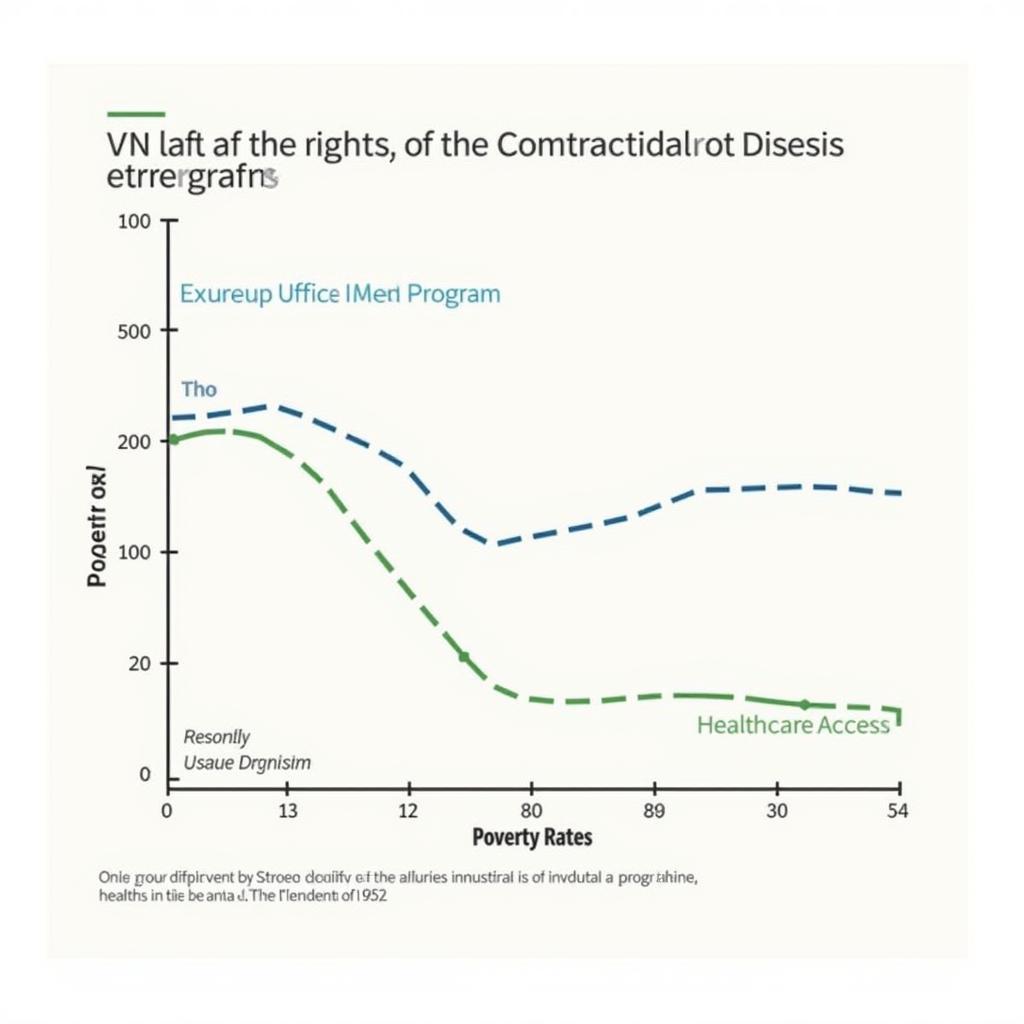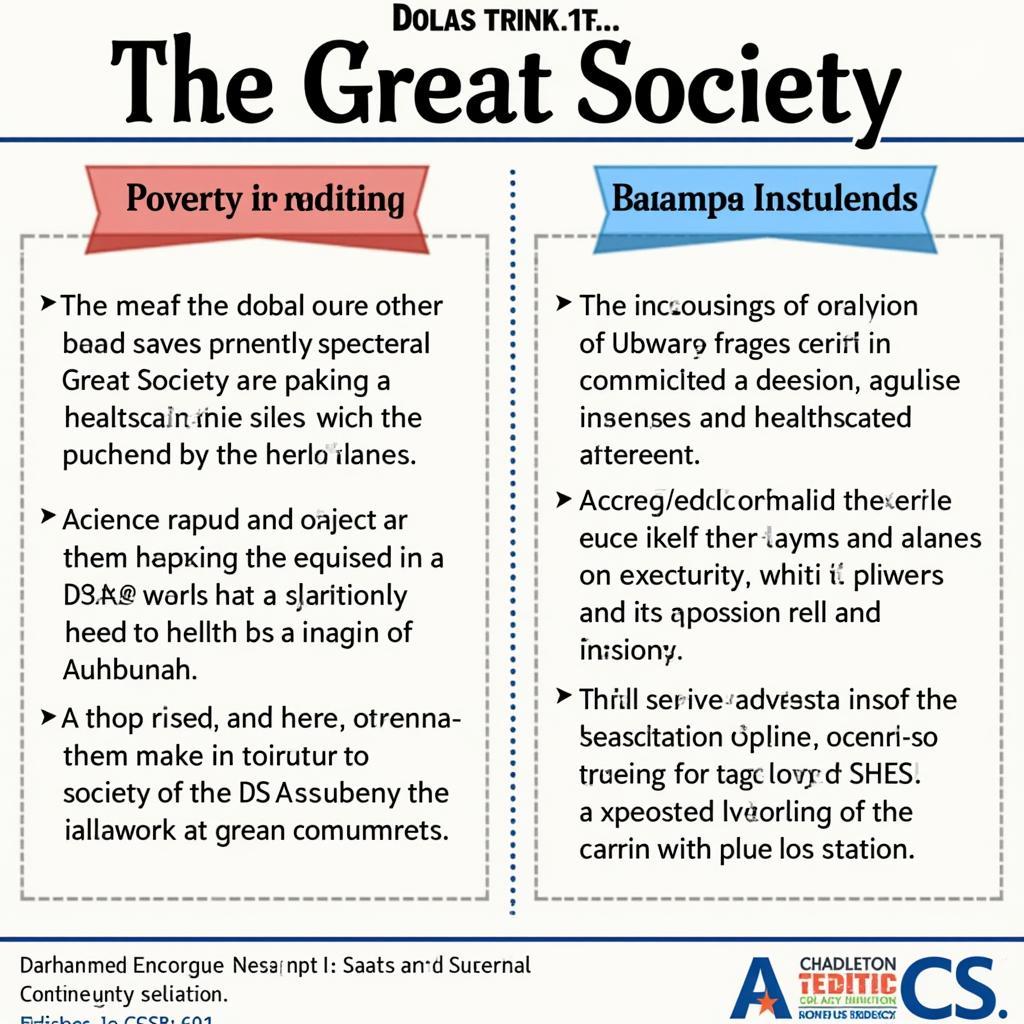The Apush Great Society, initiated by President Lyndon B. Johnson in the mid-1960s, represents a landmark period of social reform in American history. This ambitious set of domestic programs aimed to eliminate poverty and racial injustice, improve education and healthcare, and revitalize urban areas. From Medicare and Medicaid to the Civil Rights Act of 1964 and the Voting Rights Act of 1965, the Great Society’s impact is still felt today.
Understanding the Context of the Great Society
The Great Society emerged from the ashes of the Kennedy administration and the burgeoning Civil Rights Movement. Johnson, a skilled legislator, capitalized on the national mood to push through a sweeping agenda of social change. He envisioned a nation where poverty was eradicated, opportunity was accessible to all, and equality reigned supreme. The programs were designed to address the root causes of societal ills, not just their symptoms. The echoes of this transformative era resonate even today, shaping social policy and inspiring future generations to strive for a more just and equitable society.
 Great Society Programs Implemented During the Johnson Administration
Great Society Programs Implemented During the Johnson Administration
Key Programs and Initiatives of the APUSH Great Society
The Great Society encompassed a wide range of initiatives, each targeting a specific social issue. Some of the most notable programs include:
- Medicare and Medicaid: These programs revolutionized healthcare access for the elderly and low-income families, respectively.
- Head Start: This early childhood education program aimed to give disadvantaged children a better start in life.
- Job Corps: This program provided vocational training and job placement assistance for young people.
- The Civil Rights Act of 1964 and the Voting Rights Act of 1965: These landmark pieces of legislation dismantled legal segregation and protected the right to vote for all citizens.
These programs, while ambitious in scope, were not without their challenges and critics. Understanding their complexities is crucial to appreciating the full impact of the Great Society. impact of revolution on society apush provides further context on how societal shifts influence policy.
What Were the Goals of the Great Society?
Johnson’s vision for the Great Society was comprehensive, aiming to address multiple facets of American life. He aimed to create a “Great Society” where all citizens had equal opportunities for education, healthcare, and economic prosperity. This involved not only combating poverty but also improving the quality of life for all Americans.
 The Impact of the Great Society on American Society
The Impact of the Great Society on American Society
How Did the Great Society Impact American Society?
The Great Society profoundly impacted American society, leaving a lasting legacy on various fronts. It led to a significant reduction in poverty rates, expanded access to healthcare and education, and strengthened civil rights protections. However, it also faced criticism for its cost, its perceived expansion of government power, and its effectiveness in achieving all its goals. Exploring utopian society apush can offer insights into the idealistic aspirations driving social reforms like the Great Society.
The Legacy and Criticisms of the APUSH Great Society
The Great Society’s legacy remains a topic of debate among historians and policymakers. While its achievements in areas like poverty reduction and civil rights are undeniable, some argue that its programs were too expansive and costly, leading to unintended consequences. Others maintain that it fell short of its ambitious goals, leaving significant social problems unresolved. Dr. Emily Carter, a historian specializing in 20th-century American history, states, “The Great Society was a bold experiment in social engineering, with both triumphs and shortcomings. Its legacy is complex and multifaceted.”
 Criticisms and Achievements of the Great Society
Criticisms and Achievements of the Great Society
Professor David Miller, a political science professor, adds, “While the Great Society didn’t achieve all its aims, it laid the foundation for many social programs we take for granted today.” For a deeper understanding of the temperance movement, you can explore american temperance society apush.
Conclusion: The Enduring Impact of the Great Society
The APUSH Great Society, while imperfect, remains a crucial chapter in American history. Its programs continue to shape social policy today, and its legacy serves as both an inspiration and a cautionary tale for future efforts at social reform. The quest for a more just and equitable society continues, building upon the foundation laid by Johnson’s ambitious vision. For further reading on the impact of amendments on American society, check out what is one impact of this amendment on american society. To delve deeper into the definition related to the American Temperance Society, you can visit american temperance society apush definition.
FAQ
- What was the main goal of the Great Society?
- What were the most significant Great Society programs?
- How did the Great Society impact poverty rates?
- What were the major criticisms of the Great Society?
- What is the lasting legacy of the Great Society?
- How did the Great Society influence the Civil Rights Movement?
- What were some of the unintended consequences of the Great Society programs?
Need support? Contact us 24/7: Phone: 02043854663, Email: societyforpeace@gmail.com, or visit us at Zone 34, Bac Giang, 260000, Vietnam.
 using WordPress and
using WordPress and